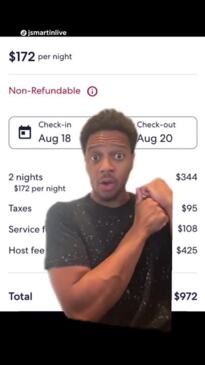Airbnb backs short-term rental levy for NSW
Accommodation platforms Airbnb and Stayz have backed a short-term rental tax for NSW, similar to one being introduced in Victoria, but with one key difference.

Accommodation platforms Airbnb and Stayz have backed a short-term rental levy for NSW, similar to one being introduced in Victoria, but with a key difference.
The news comes in response to a NSW government inquiry examining the effect of short term rental accommodation in the state on housing supply and affordability.
In its submission, Expedia, which owns booking platforms Stayz and Wotif, backed a levy set at a “sensible” rate, but maintained that it must be applied to all accommodation, including hotels.
It did not quantify what would constitute a sensible rate, however has previously strongly objected to the introduction of a 7.5 per cent levy in Victoria.
Victoria announced the introduction of the 7.5 per cent levy last September, which will start to be applied to bookings taken from January 1, 2025.
In that state, hotels have been made exempt from the levy.

In its submission, Airbnb supports a tourism levy, which it said should be broad in scope, but did not specifically call for hotels to be included.
Airbnb advocates setting the levy at three to five per cent of the cost of accommodation, to be used to support social and affordable housing projects.
Airbnb also wants the state government to scrap caps on the number of nights properties can be rented for, which have been implemented in a number of NSW local government areas.
For example, in most of Byron Bay, properties can only be rented for a maximum of 60 nights a year, while in Greater Sydney, hosts are limited to renting out their properties for a maximum of 180 nights a year.
Eacham Curry, senior director, government and corporate affairs at Stayz told news.com.au that “Stayz has always advocated for the short term rental accommodation sector to make a contribution that recognises the impact that it has on the provision of services by state and local governments”.
He added that “any levy should be applied to all short-term accommodation providers”.
“Short term rental accommodation is not the cause or the solution to the current pressures on housing,” he added.
“We would encourage government to avoid additional or increased day or night caps, limits on guest numbers, or day fees. None of these approaches would address current concerns around housing and could risk the value short term rental accommodation brings to local communities and their economies.”

Susan Wheeldon, Airbnb country manager for Australia and New Zealand, said the company
wants “to play a role in finding sensible, long-term solutions to help increase the housing supply and work with policymakers to balance the benefits of home sharing with the needs of the wider community”.
“Hosting is an economic lifeline for many amidst a cost of living crisis, with a recent study finding 40 per cent of Aussie hosts say the money they earn from Airbnb has helped them stay in their homes,” she said.
But the introduction of a levy does not have universal support, with the measure being opposed by both the NSW Tourism Industry Council and Business NSW.
Both groups also called on the government to abolish caps on the number of nights a property can be offered as a short term rental.
Shelter NSW backs a limit on the number of short term rental accommodation permits issued per local government area.






